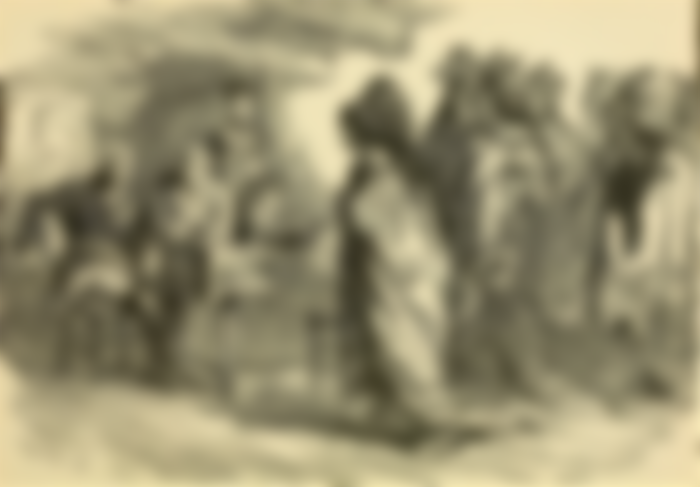Following the incursion of Trump supporters into the Capitol and violent clashes with police resembling scenes from riots or coups in distant authoritative Central Asian countries or "banana republics" of Africa, the US Congress on Thursday confirmed the victory of former US Vice President Joe Biden in the US presidential election and announced he was taking office on January 20th. Members of the US government are even considering the possibility of ousting President Donald Trump by activating the 25th Amendment to the US Constitution, which allows the vice president and the majority in the government to declare the president "incapable" of doing his job.

Furthermore, a national state of emergency was declared and the rebel rally in support of the new President Biden was ordered - gathered for the Day of Inauguration. . The Coast Guard has been ordered to block all ports, and the latest Homeland Security Minister has been ordered to organize a national curfew throughout the territory.

Despite the fact that they are known in the world for fighting for constitutional rights and democracy, for most of its history, the United States has had a very fragile practice in protecting individual rights. Congress has enacted a series of laws over the centuries that have had some rather worrying consequences, giving the government broad powers to imprison individuals or abolish personal freedoms on the grounds of protecting national security. Here is a look at some of the most frightening laws in American history:
Acts against rebellion and immigrants!

These are four legal acts passed by the Federalists in the early history of Congress, signed by President John Adams in 1798. They were a response to the French Revolution and gave the president the authority to imprison or deport foreigners he believed posed a threat to the United States. They also restricted freedom of speech if it criticized the government. Critics claim that these acts were, above all, an attempt to suppress voters who did not agree with the Federalist Party, which led to the victory of Thomas Jefferson and the Democratic Republican Party in the 1800 elections. The acts ceased to be valid in the following years.
Indian Removal Act!

The Indian Removal Act was passed by Congress on May 28, 1830, and was signed by President Andrew Jackson. The law effectively authorized the president to forcibly remove American Indian tribes from the territories of their ancestors in the southern states of the United States, by relocating them west of the Mississippi. The application of the law led to the systematic removal of numerous tribes, which resulted in migration during which hunger and disease killed thousands of Indians.
The Slave Escape Act of 1850!

The Slave Escape Act was passed by the Congress of the United States on September 18, 1850, as part of a compromise between the slave-owning South and the free North. The law requires that all escaped slaves, after capture, be returned to their masters and that officials and citizens of free states must cooperate on this issue.
The Espionage Act of 1917!

The 1917 Espionage Act, passed during World War I, was supposed to prohibit interference in military operations to prevent disobedience in the military and make it more difficult to support American enemies during the war. The law was used to imprison the leaders of the American socialist movement, as well as later members of the communist movement, and it is still in force today.
The 1918 Rebellion Act!
The Rebellion Act of 1918 repealed the Espionage Act on several occasions, but extended it to many other spheres, primarily when it came to restricting speech and expressing opinions that portrayed the U.S. government or war efforts in a bad light. This legal act prohibited the use of "disloyal, vulgar, shameful or offensive language" against the government, the flag or the army and provided for a sentence of 20 years in prison for offenders. It was supposed to be valid only in times of war, but it was used to convict over 1,000 people immediately after the end of the First World War. Congress did not repeal it until 1920.
So far, the law has been invoked about 20 times, either by order of the governor when his national guard was not enough to establish order, or at the direct initiative of the federal government. The same Rebellion Act served to suppress racial unrest in Mississippi and Alabama 1962-1963 and to combat racial unrest in Detroit in 1967, Washington, Baltimore, and Chicago in 1968 after the deaths of Martin Luther King, and finally in Los Angeles in 1992. Donald Trump threatened that he would deploy the army in June 2020, on the eve of the street riots that followed the death of George Floyd.
Executive order 9066!!

Executive Order 9066 is a presidential executive order signed and issued during World War II by President Franklin D. Roosevelt. He allowed the War Secretariat to declare certain areas military camps for the deportation of Americans of Japanese, Italian and German descent. In practice, however, the order was mostly applied to Japanese Americans, and about 120,000 men, women, and children of Japanese descent were deported from the west coast of the United States and imprisoned in concentration camps across the country.
Public law 503!
Public Law 503 is a law passed by Congress that empowered federal courts to enforce Executive Order 9066. This made resistance to this provision a criminal offense punishable by imprisonment and a fine. It was passed in just 12 days, an unusually short period for the U.S. Congress. Many of those interned under these laws, who were U.S. citizens, lost their homes, businesses, property, and savings.
Gulf of Tonkin Resolution!

The resolution on the Gulf of Tonkin was passed by the US Congress on August 7, 1964, in response to the incident in the Gulf of the same name. The resolution gave President Lyndon Johnson the authority to use "conventional" military forces in Southeast Asia without formally declaring war on Congress, effectively giving him a free hand to wage war with North Vietnam.
Patriotic law!

The Patriot Act is a law passed in the U.S. Congress that came into force after it was signed by U.S. President George W. Bush on October 26, 2001. Voted in response to the September 11, 2001 attacks, the law dramatically reduced law enforcement restrictions on wiretapping and e-mail communications, as well as searching medical, financial, and other records. It has reduced restrictions on the collection of intelligence in the United States concerning foreigners. It expanded the powers of the US Treasury Secretary to regulate financial transactions, especially those involving foreign individuals and legal entities, and expanded the discretion of migration and law enforcement agencies in imprisoning and deporting immigrants suspected of terrorism and acts related to terrorism. The law also expanded the definition of terrorism to include domestic terrorism, thus increasing the number of activities to which the extended powers of law enforcement agencies can be applied.

In addition to the president, the US Congress is closely monitoring the smallest internal changes in the Pentagon. The Joint Staff is severely limited by the total number of its officers - a few dozen under the National Security Act of 1947 - while the 1986 Goldwater-Nichols Act deprives it of all operational command except nuclear power, under the technical responsibility of the general presiding over the staff. Thus, despite the fact that the legal and political system of the USA favors the possibilities of paralegal action, the possibilities of a coup d'etat should also be seen within the very internal contradiction of the order of the American global superpower and its power.










It's a weird policy, there's something. So we can expect a war from January 20th.